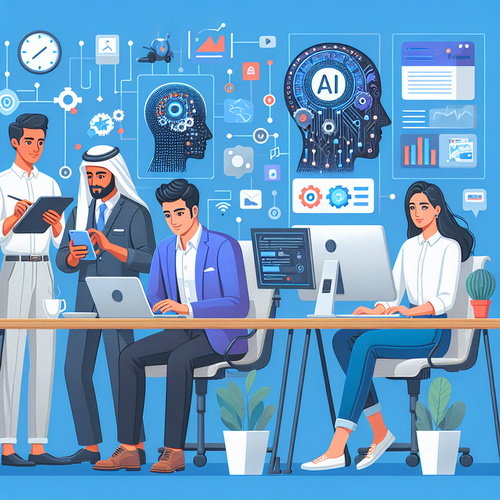
The Future of AI-Driven Programming Tools
The Future of AI-Driven Programming Tools
The landscape of programming is undergoing a transformation driven by artificial intelligence (AI). As coding demands evolve, developers are seeking smarter tools to enhance productivity and creativity. This article delves into how AI is setting the stage for the next generation of programming tools, making coding faster and more intuitive.
What Are AI-Driven Programming Tools?
AI-driven programming tools leverage machine learning algorithms to assist developers in various tasks, from writing code to debugging and optimization. These tools can analyze existing codebases, identify patterns, and suggest improvements, enabling developers to work more efficiently.
The Rise of AI in Software Development
According to a recent survey, over 60% of developers are now using AI-powered tools in their workflow. This rapid adoption signifies a shift in how coding practices are perceived. More developers are recognizing the value AI brings in reducing repetitive tasks, thereby allowing them to focus on creative problem-solving.
Key Features of AI-Driven Programming Tools
- Code Assistance: These tools provide real-time suggestions as developers type, helping to minimize syntax errors.
- Automated Testing: AI can generate test cases based on code patterns, increasing the reliability of software.
- Intelligent Debugging: Tools can analyze code behavior and suggest fixes for bugs with detailed explanations.
- Integration with Existing Workflows: Many AI tools seamlessly integrate with popular IDEs, making them easy to adopt.
Benefits and Challenges
The integration of AI into programming brings several benefits:
- Increased Efficiency: Developers can code faster and with greater accuracy, significantly reducing the time spent on mundane tasks.
- Enhanced Collaboration: AI tools allow for better communication among team members by providing insights and code reviews based on best practices.
- Learner’s Aid: For beginners, AI tools act as tutors, offering suggestions and explanations for best coding practices.
However, there are challenges too. Some developers express concerns about becoming overly reliant on these tools and potentially losing fundamental coding skills. Maintaining a balance is crucial as this technology evolves.
Real-World Applications of AI Programming Tools
Leading tech companies have begun integrating AI tools into their development processes. For instance, GitHub Copilot uses OpenAI’s Codex model to assist developers by suggesting whole lines of code or entire functions based on comments and existing code. This innovative approach has streamlined coding processes for many users.
Looking Ahead: The Evolution of AI in Programming
As AI continues to evolve, we can expect more advanced tools that can learn from more data, making them even more effective. The potential for machine learning to customize user experiences based on individual coding styles is enormous. With enhanced capabilities, AI-driven programming tools will not only facilitate smoother coding experiences but also pave the way for innovations that we have not yet imagined.
For further insight into the intersection of AI and technology trends, check out our post on Harnessing AI for Enhanced Cybersecurity Strategies.
















